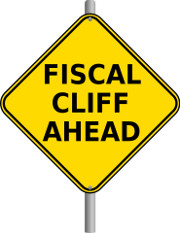
USA (MNN) — Non-profits throughout the nation are concerned as Congress considers cutting or limiting the 35% tax deduction Americans receive for charitable donations.
Would altering deductions save the United States from the fast-approaching fiscal cliff?
"If [deductions are] taken away, it really doesn't result in a lot of additional funding for the U.S. government," says Food for the Hungry president Dave Evans. "It's really the entitlement areas that are the large areas."
He likens it to a family budget: "You don't start with the small stuff if you're really in trouble. You have to start with the big stuff: the car payments, things like that."
According to the U.S. Treasury, the national debt is over $16,000,000,000,000. This figure doesn’t include state and local debt, or entitlement programs like Social Security and Medicare. These programs top the national budget, earmarking approximately $759 billion and $726 billion, respectively.
"We, as a nation, do need to rein in our deficit and our debt," Evans says. ”We just believe that [there are] other places that are much more out of whack."
He believes charitable deductions make a so-called "middle ground" because nonprofits lack a significant presence on Capitol Hill.
"Congress is searching for the least painful places to make cuts," Evans explains. "They're going to find places that [have] the fewest amount of lobbyists who are going to come and say, 'No, no don't cut that!'
"We're small, and we can't afford to have that many voices in Washington the way large lobby firms can, or large businesses, so I think that's one of the reasons it is being targeted," Evans adds. "It's sort of an easy target."
Groups like FH are seemingly caught between a rock and a hard place. Getting rid of deductions for donations could lower the incentive to give. But going over the fiscal cliff would have bad results, too.
"Going over the fiscal cliff would unfortunately result in across-the-board cuts," says Evans. This would mean cuts to the U.S. State Department, Department of Agriculture, and Agency for International Development — all of which give a small percentage of funding to FH programs overseas.
Evans explains, "Less than one-half of one percent of the federal budget goes to help the world's poor outside of the United States… Cutting a tenth of a penny, if you will, is not going to help that much."
Less funding means less help for the world's poor.
"Reduced funding means it's a life-or-death situation, and that's really not the case for some of the large-ticket items on our federal budget," says Evans.
He gives FH feeding programs in eastern DR Congo and Ethiopia as an example. Funding cuts, he says, would mean FH would have to cut back on the food aid they send to these programs.
"We wouldn’t be able to serve as many children," Evans clarifies. "I mean, you're talking about severely malnourished kids. Unless they're in a wet feeding center, they're not going to make it."
The United States will fall over the fiscal cliff on December 31, 2012 if no action is taken. Pray for U.S. senators and congressmen.
"Pray that they won't 'play chicken' and then go over this cliff and blame it on each other," says Evans. "I really think this is an opportunity for our elected officials in Washington, D.C. to step up and lead the nation."
Click here to find your representative. Encourage him or her to protect the charitable deduction.
